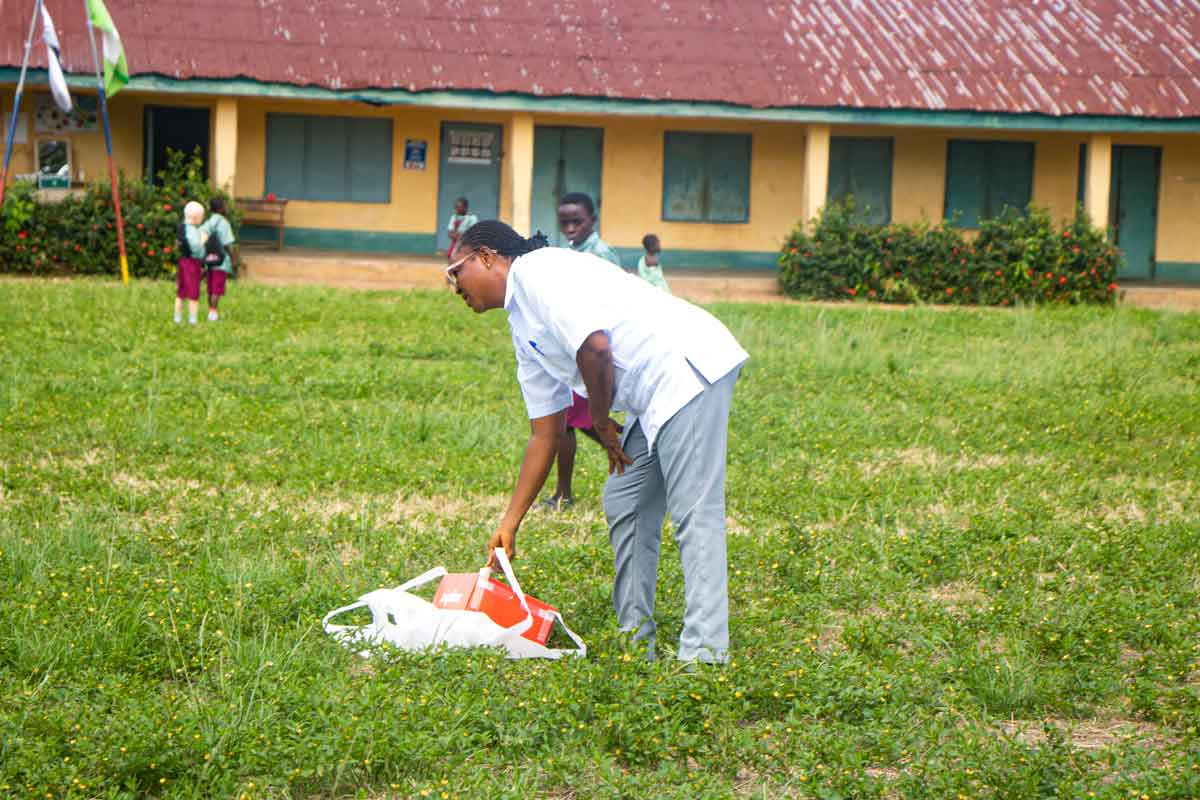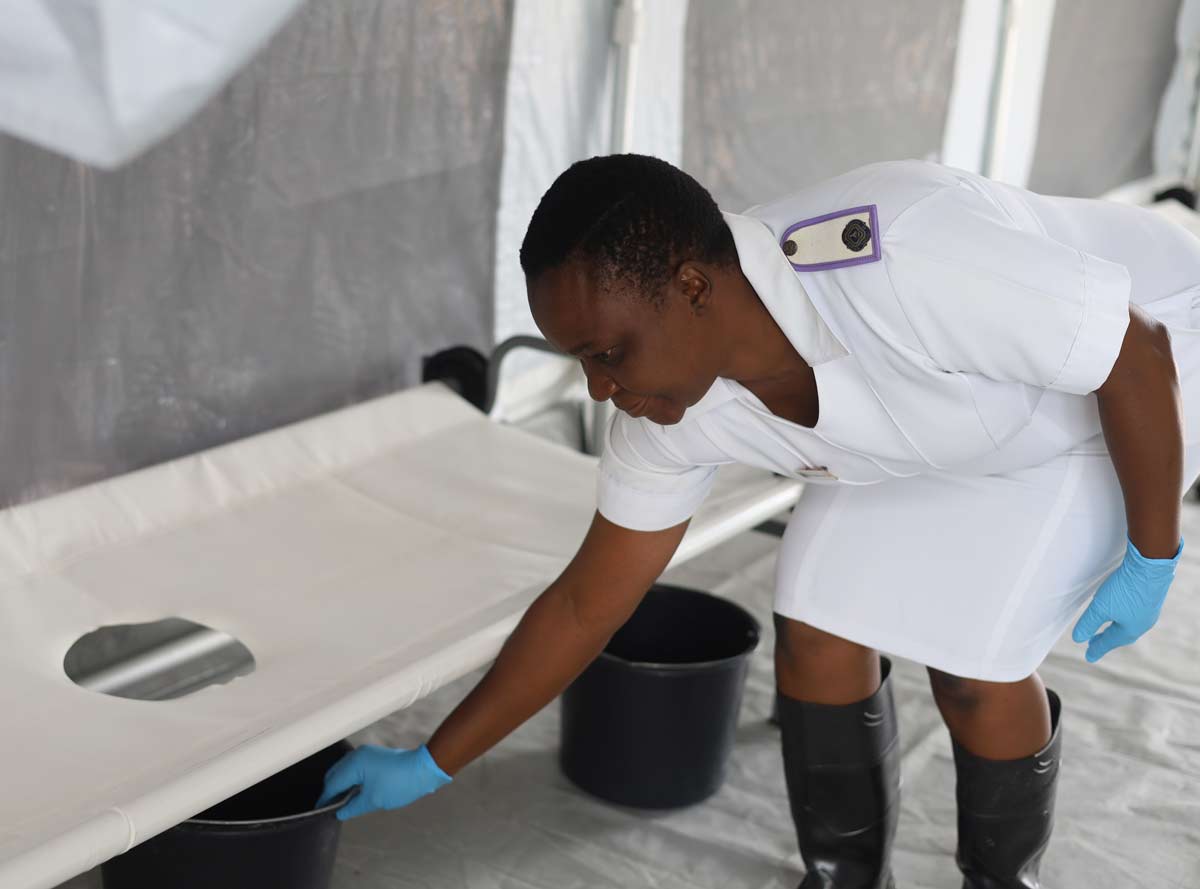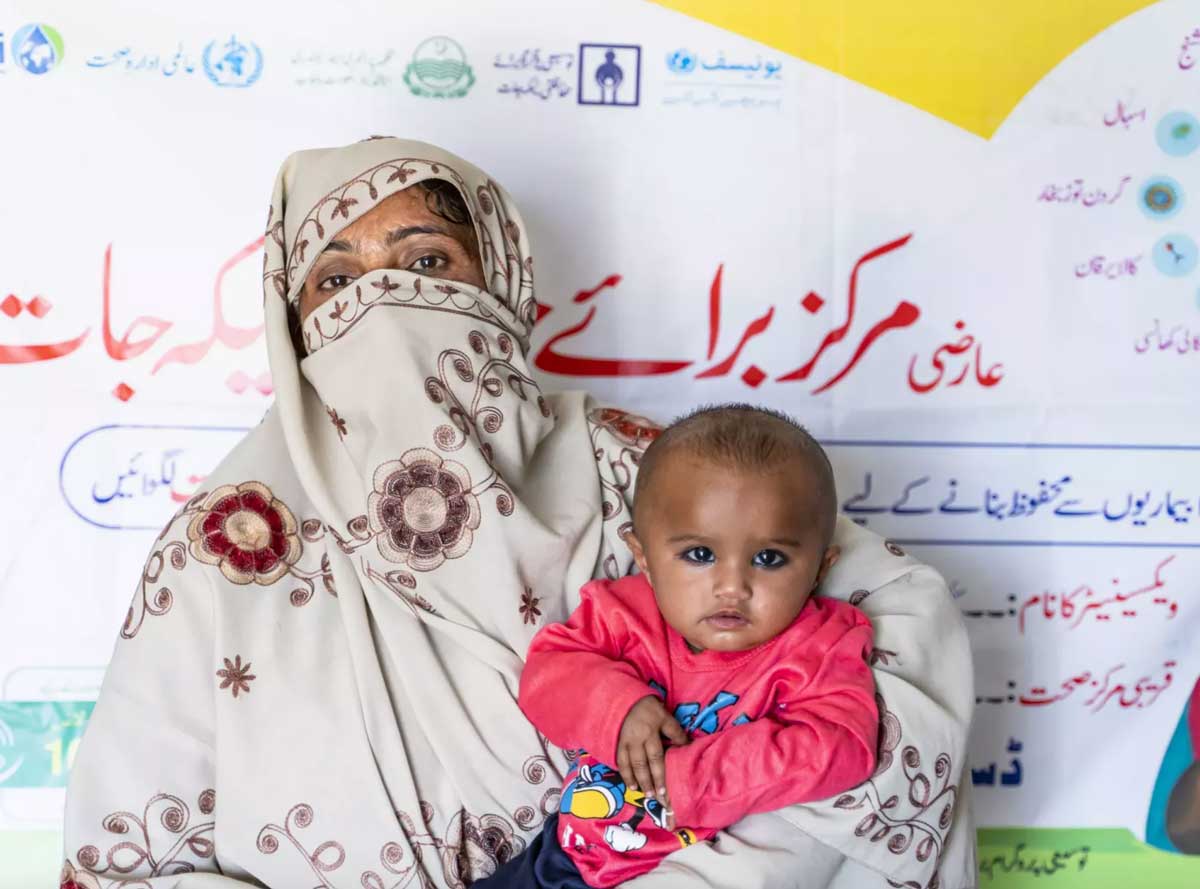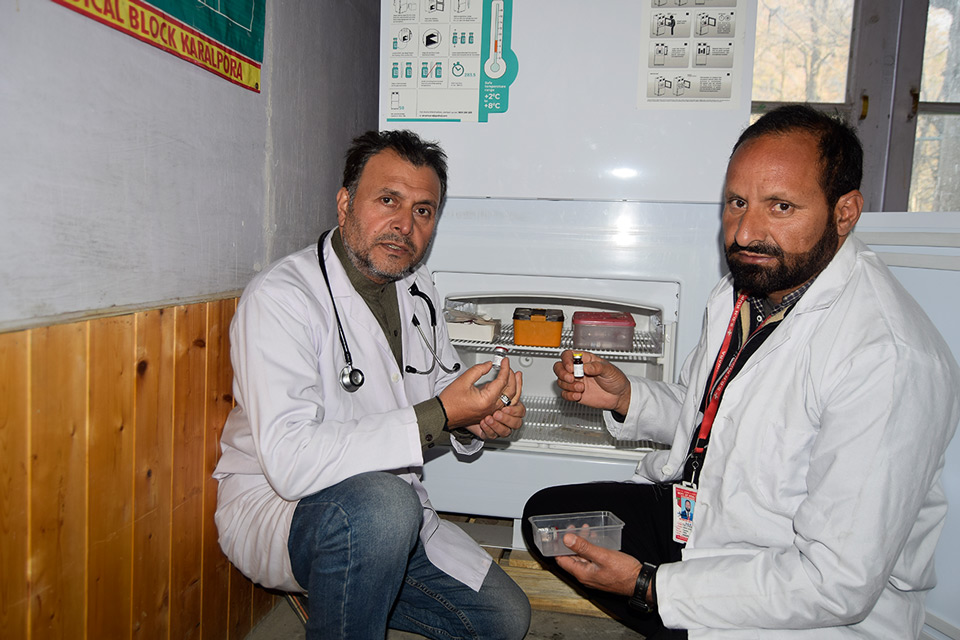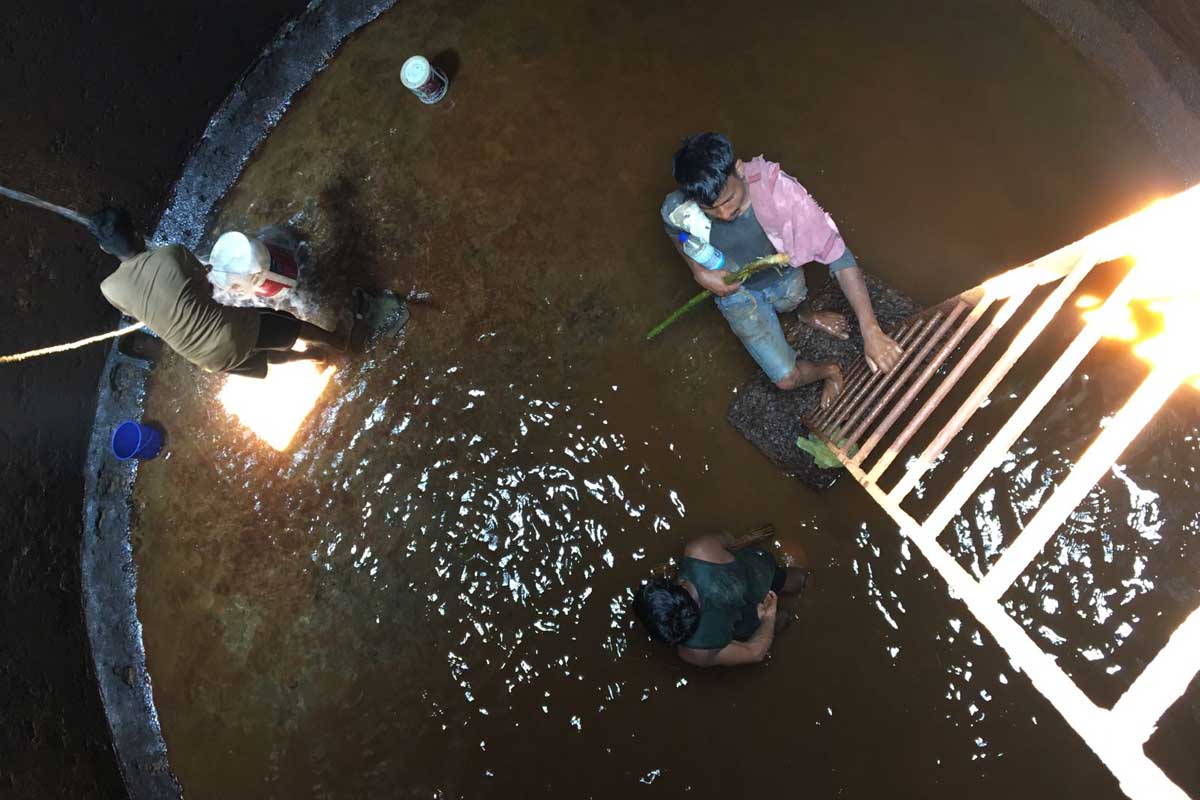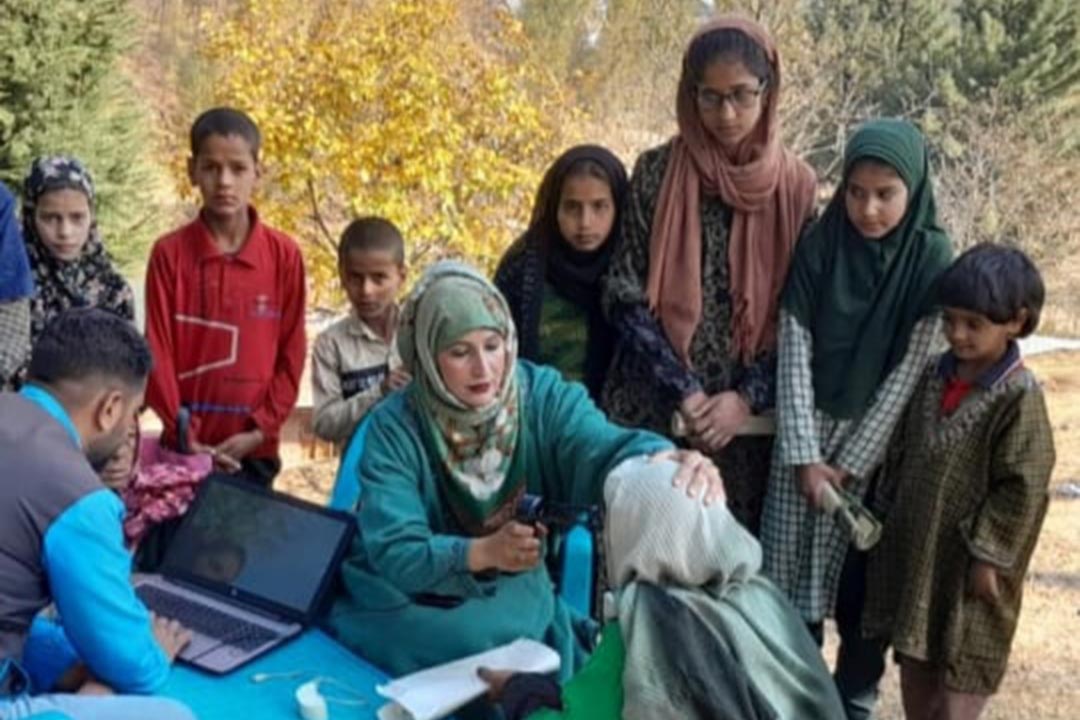COVID-19 vaccination in India’s remote villages
Health workers and religious heads have joined forces to ensure that Kargil’s remote villages are vaccinated against COVID-19.
- 28 September 2022
- 4 min read
- by Nasir Yousufi
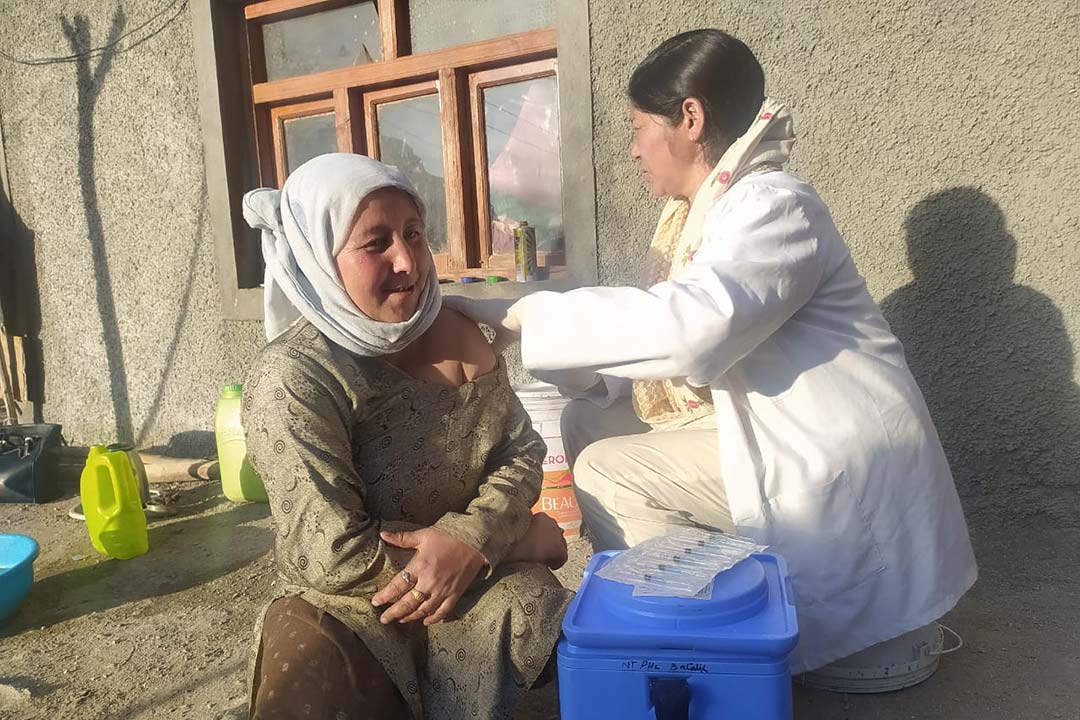
The hilly hamlets of India’s Kargil region are a nightmare for health workers to access. This, combined with vaccine hesitancy in the region, meant a low response to the government’s unprecedented COVID-19 vaccine drive.
Many villagers in the area work as herdsmen tending to livestock along the steep gorges and slopes in the upper parts of Indus River. In addition, with houses scattered across the area, vaccinating in the region is always a challenge.
“It is our collective responsibility to work for the betterment of mankind and society. Vaccines are for the safety of humankind. I have asked my villagers to take the vaccine jab as soon as possible.”
Health workers, working alongside community leaders, sought to change that. They launched an intensive door-to-door vaccination drive, moving from ridges to crevices, hills to gorges through high altitude villages in the border area of Batalik. While health workers administered vaccines, religious heads from both local Muslim and Buddhist communities used faith to motivate people to get the jab.
Dr Sanjay Koul, Block Medical Officer of Batalik, says, “Given the tough terrain and remoteness of the villages, the department launched the ‘Har Ghar Dastak’ (Knock Every Door) campaign to take the vaccines to the doorsteps of the people. A team of doctors, paramedics and ASHA workers traversed the rocky mountains to vaccinate the population in the area. After an intensive campaign that ran for weeks, we were able to achieve 100% vaccination.”
“My mother is suffering from a respiratory disorder and it is not possible to carry her down from such heights. We are thankful to the health team, who climbed up to vaccinate her,” says Javaid Ali, from Silmo village, referring to a steep slope they live on.
When the health officials on the ground observed a level of vaccine hesitancy among the people in the first phase of COVID-19 vaccination, they decided to involve local community heads to motivate the people to come forward to get vaccinated.
On an overcast morning, the family members of Mohammad Hussain, a 45-year shopkeeper from Silmo village in Batalik, were surprised when he asked them to get ready to receive their COVID-19 vaccines. Up to that point, he – along with his parents – was reluctant to allow any family member to get vaccinated.
Have you read?
The night before, Hussain had heard a speech from Sheikh Mohammad Ibrahim, the prayer head of the mosque. The speech completely changed his perception of vaccines.
“You should get vaccinated. Vaccines are safe for everyone. They prevent the further spread of disease, so it is obligatory for the faithful to safeguard other lives by getting vaccinated,” Sheikh Mohammad Ibrahim said in his speech, persuading people to go for vaccination.
Rigzin Dawa, a village head from the historically significant Darchik village, home to the rare Buddhist ‘Dard’ tribe, has also been motivating community members to get vaccinated for COVID-19.
“It is our collective responsibility to work for the betterment of mankind and society. Vaccines are for the safety of humankind. I have asked my villagers to take the vaccine jab as soon as possible,” says Dawa.
“Since many people from across the country and abroad visit this area, it is important that every single member of the community gets vaccinated for the safety of all,” Dawa adds, while referring to cultural tourism in the region.
Dr Koul explains, “Local community heads have played a pivotal role in the success of the vaccination drive in these areas. They have helped us to do away with the vaccine hesitancy among the people through their motivational speeches.”
In Batalik’s main village, the population above 12 years have all received three doses of vaccines. As per the statistical records available with the Primary Health Centre Batalik, health officials have administered 1,350 vaccines so far in all three phases of vaccination, a figure that surpasses the primary target as the department has also vaccinated a number of army personnel and migrant labourers in the village.
According to Dr Munawar Hussain Wazir, Chief Medical Officer, Kargil, the health officials working on ground in a hard area like Batalik Zone have done commendable work by vaccinating nearly 100% of the eligible population.
Out of 3,143 people, the department has administered three doses of vaccines to about 3,000 people in the area, Dr Munawar says.
More from Nasir Yousufi
Recommended for you



